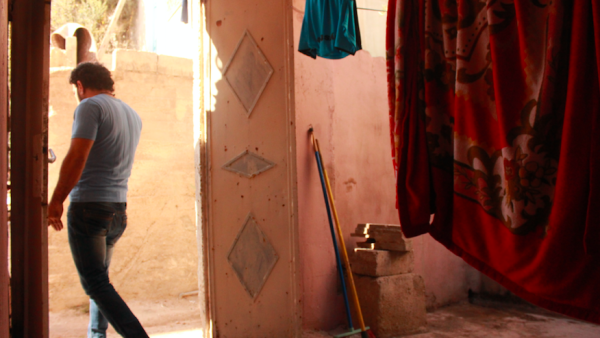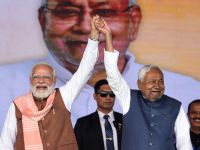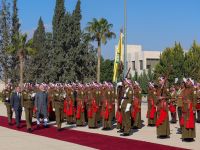By Jason Ruffin
Omar, an Iraqi refugee, quietly stands up during our interview and walks to the opposite side of the room, he flips a switch, and immediately the 20 or so tiny birds in the apiary behind his couch fall silent mid-song. Only a few close to the window joining the caged room to our still lit interview let out the occasional plea.
'Omar Ziad', an alias name, is an Iraqi refugee. He fled to Syria with his family after sectarian violence ravaged his community in Iraq. He now helps run programs for a local NGO called Collateral Repair Project in Hashemi Shamali. Many of which, target men suffering from mental health issues related to trauma.
After fleeing to Syria with his family, Omar attempted to return to Iraq alone. He says during which, he was captured, and held for ransom. He pulls up his shorts revealing a circular scar from where his torturers used an electric drill on his thigh. He says he was held for five months, until they finally demanded ransom from his family. Shortly after paying, his wife and son were approved for resettlement in Canada. He, however, was not. When the civil war broke out, he was forced to come to Jordan alone.
According to the International Journal of Public Health, suicide has risen sharply in the Middle East over the last 25 years. In 2015, it accounted for nearly 30,000 deaths. An increase of 100% over the same period, a number the Journal admits is probably low, due to underreporting. The increases were most apparent in men between the ages of 20-24 years old.
During the same time period, suicide rates increased around 19% for the rest of the world. The journal blames an increase in instability in the region for the sharp rise since the countries with the highest rates have all recently went through periods of strife. However, some development agencies are working to curb that rise, and fight the stigma mental health holds on men.
Basam Shama, a Syrian refugee whom attends CRP, among other NGOs, led his family to Jordan after the fighting intensified in his home region of Homs. He is a bit more skeptical of mental health programs. Specifically, of their ability to improve the quality of life for men trying to shoulder the burden of raising families in Jordan.
“One group of people will tell you, ‘I don’t care about the psychosocial programs or mental health, as a man, I care about getting food, getting water. There is a house I need to make sure I can afford,” he says. “And when you tell them about the mental health aspect, they will be like, ‘come on, I’m trying to provide for my family, to get rent’ it doesn’t give you money.”
Basam made the decision to leave Syria after a bomb struck near the location he and his family were hiding. Though it was the right decision, Basam seems remorseful when mentioning Syria before the war. And subsequently being forced to put his family’s lives in the hands of smugglers, or “men who deal in souls,” as he calls them.
Although he used to be against the idea of resettlement, as a father, his family’s safety is paramount. As the prospects for peace in Syria wane, so too does the hope of returning. He now takes an active role in his community. Fulfilling requests from local NGOs and mediating between them and the families they’re here to serve. However, he grows more optimistic as our interview goes on, enthusiastically pulling out photos of him and Omar at a mental health training program called Mind-Body Medicine.
The Center for Mind-Body Medicine is an organization that travels to areas of conflict and disaster, teaching community leaders and healthcare providers how to treat people dealing with trauma and stress. According to its website, it has developed programs in post-Hurricane Katrina New Orleans, Gaza, Kosovo and the American Midwest.
The program is comprised of a mix between small group therapy sessions, and self-care courses, such as healthy eating and meditation. According to its website, people report up to a 90% reduction in PTSD after ten weeks of therapy.
CRP now administers its own small group Mind-Body Medicine program. Omar said its allowed him to overcome his own issues of being separated from his family, as well as break the stigma associated with mental health for men. The classes are held behind closed doors, so as to provide a safe space where the men can dance, mediate and discuss their problems.
“We teach them how to deal with life in Jordan, and how to deal with trauma. Many of the men that come in are dealing with issues because of the war, many have stress.” Omar said, “It’s also helped me because I had a horrible experience in Iraq. It’s taught me how to deal with it better. It’s made me patient, especially when dealing with refugees. It’s taught me how to give them better service.”
Part of the program involves drawing your problems on a piece of paper. Later, you draw what you envision your life will look like after those problems are over. I asked Omar what he drew. “I always draw the plan and the passport,” Omar said. “Because that’s the only thing I want, I want to join my family.







